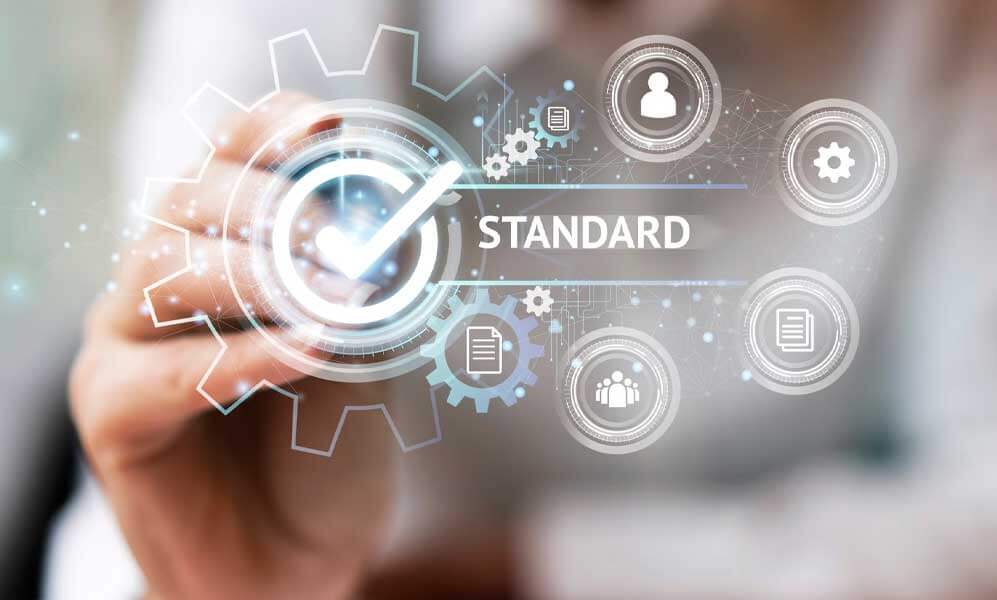
Understanding ESG: Environmental, Social, and Governance
August 4, 2023
Understanding the Life Cycle Perspective in ISO 14001:2015
February 1, 2024We have witnessed a significant shift in business paradigms in recent years, with an ever-growing emphasis on the Environmental, Social, and Governance (ESG) framework in Malaysia. Once considered peripheral, ESG standards are now at the forefront of business strategies as companies recognise their profound impact on long-term sustainability and corporate resilience.
As we navigate this article, we will explore the specific role that ISO standards play in providing a benchmark for excellence and offering a roadmap for businesses to navigate the intricate landscape of ESG considerations.
Key Elements and Criteria in the Malaysian ESG Landscape
Within the Malaysian ESG landscape, several key elements and criteria shape the evaluation of businesses:
Environmental Responsibility: Assessing a company’s environmental impact, including efforts to reduce carbon emissions, manage waste responsibly, and contribute to biodiversity conservation.
Social Welfare: Evaluating a company’s commitment to social responsibility, encompassing community engagement, diversity and inclusion, labour practices, and the well-being of employees and stakeholders.
Governance Practices: Scrutinising the governance structures within a company, including board composition, transparency, risk management, and adherence to ethical business conduct.
Understanding and adhering to these critical elements is vital for businesses seeking to navigate the intricacies of the Malaysian ESG framework. Companies that excel in these areas contribute positively to society and the environment and position themselves as responsible and forward-thinking entities within the Malaysian business ecosystem.
The Relevance and Impact of ESG Standards for Sustainable Business Practices
For Malaysian businesses, embracing ESG standards is not merely a regulatory requirement but a strategic imperative. Aligning with these standards enhances corporate reputation, fosters stakeholder trust, and positions businesses as responsible contributors to societal well-being.
Moreover, as investors increasingly consider ESG factors in their decision-making processes, adherence to these standards can attract sustainable investments, further bolstering a company’s financial health.
As consumer awareness grows and preferences shift towards socially and environmentally conscious products and services, businesses integrating ESG principles are better positioned to meet evolving market demands. The long-term viability of businesses in Malaysia is intricately tied to their ability to embrace ESG standards and embed these principles into their corporate DNA.
ISO Standards for Sustainability in Malaysia
As Malaysia continues its journey towards sustainable and responsible business practices, these ISO standards provide a robust foundation for organisations to align with global best practices and contribute positively to environmental, social, and governance goals.
Exploration of ISO Standards Contributing to Environmental Sustainability
In Malaysia’s pursuit of environmental sustainability, several ISO standards serve as indispensable guides for businesses committed to reducing their ecological footprint:
- ISO 14001 for environmental management sets the foundation for effective environmental management systems, helping organisations identify, monitor, and control their environmental impact.
- ISO 14061-1 for GHG quantification or reporting provides a structured approach to quantifying and reporting greenhouse gas emissions, which is crucial for businesses seeking to mitigate their contribution to climate change.
- PAS 2050 for carbon footprint assessment enables businesses to comprehensively assess their carbon footprint, a vital step towards understanding and reducing their overall environmental impact.
- PAS 2060 for achieving carbon neutrality outlines the requirements for achieving carbon neutrality, offering a framework for businesses committed to offsetting their carbon emissions.
- ISO 14090 for climate change adaptation addresses the challenges posed by climate change, ISO 14090 guides adapting business practices to a changing climate, ensuring resilience and sustainability.
- BS 8583 for water management guides businesses in sustainable practices, promoting efficient use and conservation.
- ISO 50001 for energy or resource management establishes a systematic approach to energy management, assisting organisations in optimising energy use and reducing resource consumption.
Examination of ISO Standards Promoting Social Responsibility
In fostering social responsibility, these ISO standards offer businesses in Malaysia a comprehensive framework for ethical and socially conscious practices:
- ISO 26000 for social responsibility provides guidelines on incorporating social responsibility into organisational values and operations, addressing the impact of businesses on society.
- BS 76000 for employee relations and diversity focuses on creating inclusive workplaces, offering a framework for effective employee relations and fostering diversity within organisations.
- PAS 1948 for addressing modern slavery equips businesses with tools to address and eradicate modern slavery within their supply chains.
- ISO 10018 for employee engagement outlines principles for engaging and motivating employees, promoting a positive workplace culture that contributes to overall business success.
- ISO 45001 for health and safety management prioritises the well-being of employees while providing a framework for establishing occupational health and safety management systems.
- ISO 20400 for sustainable supply chain management guides businesses in integrating sustainability principles into their operations, ensuring responsible sourcing and ethical practices.
Insights into ISO Standards Fostering Effective Governance
Effective governance is crucial for organisational success and sustainability. The following ISO standards offer insights into fostering robust governance practices:
- ISO 37000 for corporate governance provides guidelines for establishing and maintaining effective corporate governance systems, ensuring transparency, accountability, and ethical conduct.
- ISO 22316 for business continuity equips businesses with tools for effective planning, response, and recovery from disruptions, safeguarding long-term viability.
- ISO 27001 for information security management outlines best practices for information security management, protecting sensitive data and ensuring data integrity.
- ISO 37001 for anti-bribery management assists businesses in establishing anti-bribery management systems, fostering integrity and ethical conduct within their operations.
- ISO 31000 for risk management offers a systematic approach to risk management, helping organisations identify, assess, and mitigate risks, contributing to overall resilience.
The Role of ISO Certification in Validating Sustainability Efforts
ISO certification is a tangible and internationally recognised validation of a company’s commitment to sustainability. For Malaysian businesses, achieving ISO certification is a testament to their dedication to rigorous environmental, social, and governance standards. It validates current sustainability efforts and provides a framework for continuous improvement.
By obtaining ISO certification, businesses in Malaysia showcase to stakeholders, customers, and investors that they have implemented effective management systems to meet globally accepted sustainability benchmarks. Thus, ISO certification is a powerful communication tool, enhancing transparency and building stakeholder trust.
Benefits of Obtaining ISO Certification in Malaysia
In the dynamic business environment of Malaysia, ISO certification brings many benefits. It not only aligns businesses with international best practices but also offers distinct advantages in the local context:
- Competitive edge
ISO-certified businesses gain a competitive edge in the Malaysian market, differentiating themselves as leaders committed to sustainable and responsible practices.
- Enhanced reputation
ISO certification in Malaysia enhances the reputation of local businesses, signalling to consumers and investors that they are dedicated to ethical and sustainable operations.
- Access to markets
ISO certification also opens doors to new markets and business opportunities, as it is often a prerequisite for participation in tenders and collaborations.
- Risk mitigation
By adhering to ISO standards, businesses in Malaysia mitigate operational and reputational risks, fostering long-term resilience.
The Importance of ISO Consultancy Services in Malaysia
Navigating the complexities of ISO standards requires specialised knowledge and expertise. ISO consultancy services play a pivotal role in ensuring a smooth and effective certification process for businesses in Malaysia. Professional guidance helps companies interpret and implement ISO standards that align seamlessly with their unique operations and goals.
Other than that, ISO consultants in Malaysia bring a profound understanding of the certification process, providing insights into the specific requirements of each ISO standard tailored to the local market. This ensures that businesses meet the certification criteria and integrate sustainable practices into their day-to-day operations.
Our ISO consultants and training providers at One Island Consultancy act as your strategic partners, guiding your business through each stage of the certification process, such as:
- Identifying applicable standards
Our consultants will determine which ISO standards are most relevant to your operations and sustainability goals.
- Customising implementation plans
Recognising that each business is unique, we will tailor implementation plans to fit the specific needs and challenges of the organisation.
- Monitoring and evaluation
We will also establish monitoring mechanisms to track progress, ensuring businesses remain on course towards successful certification.
Conclusion
Encouraging businesses across Malaysia to embrace ISO standards for a future defined by sustainability and responsibility is paramount. ISO certification is a badge of honour and a commitment to long-term success, resilience, and positive contributions to society and the environment. By integrating ISO standards into their operations, businesses in Malaysia not only meet global benchmarks but also shape a more sustainable and responsible business landscape for the generations to come.





